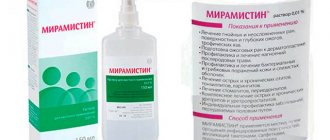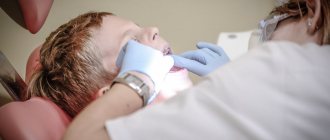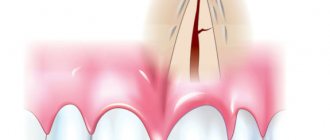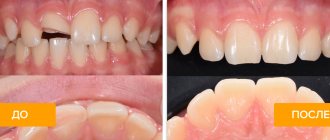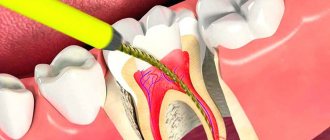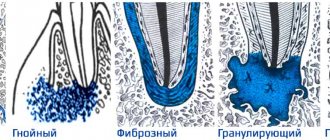Dental treatment in childhood is in many cases accompanied by local anesthesia, as a result of which sensitivity disappears not only in the causative tooth, but also in half of the jaw, including the lips. Children are unable to adequately assess their condition, and the sensation of painless biting is of considerable interest, so situations when children bite their lips until they bleed happen very often.
The child bit his lip
Why does this happen
Remembering his feelings after anesthesia at the dentist, every person can say that the numb lip seemed to him like a foreign body. It was not perceived by neighboring tissues because it was devoid of any sensitivity. And even if this seems strange and unusual to an adult, what can we say about a child who suddenly feels that something soft is lying on his lower lip, for example. Of course you'll want to bite.
If local anesthesia was performed on the lower jaw, then the lower lip becomes numb. And this is even more strange for a child. It constantly seems to him that drool is flowing from his mouth, and his lip also prevents him from speaking. And the baby begins to bite it mechanically. Moreover, just a few minutes ago some kind of dental procedure was performed, and the child is still experiencing stress.
Why does lip swelling occur due to anesthesia, and what measures should be taken?
Surgeries and manipulations in the oral cavity almost always require anesthesia. For different procedures, different methods of anesthesia are used, for example, when performing cosmetic procedures (plaque removal, teeth whitening), an application technique is sufficient, when the anesthetic is applied to the gums in the form of a gel or spray. This method allows you to neutralize the pain sensitivity of the upper layers of the mucosa.
More serious procedures (treatment and extraction of teeth, operations on the mucous membrane) require the introduction of an anesthetic deep into the tissues using an injection (infiltration and conduction techniques). Each type of anesthesia can cause swelling of the soft tissues of the face and oral cavity, including the lips. The reasons why the lip is swollen after anesthesia may be different.
Allergic reaction
Anesthetics are a common cause of allergic reactions, including manifestations in the form of tissue edema. As a rule, with allergies, after the administration of an anesthetic, swelling appears quickly, within the first thirty minutes and quickly spreads to the surrounding tissues. The patient himself, under the influence of anesthesia, may not feel any changes and notices that the lip is swollen only after the effect of the drug has stopped. An allergic reaction, accompanied by tissue swelling after anesthesia, will be noticeable to the dentist, he will take emergency measures and give recommendations for treatment.
In addition to a reaction to the anesthetic, the cause of allergic swelling of the lip can be an allergy to other agents used during the treatment process (filling material, antiseptics, and even latex gloves on the dentist’s hands). As a rule, allergic swelling is not accompanied by pain.
Infectious process
The patient the next day after visiting the dentist may notice that the lip is swollen or pulled to the side if infectious complications have developed both after pain relief and the operation itself. In case of infectious inflammation, swelling of the lips will be accompanied by pain at the injection site or along the nerve fiber. The lip will be hot and tight to the touch. Body temperature may rise, and symptoms of intoxication will appear: weakness, chills, dizziness, nausea.
Due to the proximity of the oral cavity to the brain and other vital organs, if the symptoms described above appear, you should immediately consult a doctor to avoid progression of the infection.
Hematoma
A patient may experience a feeling that the lip is swollen if, during anesthesia, a needle enters a vessel and a hematoma forms in the tissues. In this case, the lip will have a local seal; if blood has accumulated near the surface of the skin, a bruise may be visible. The hematoma is accompanied by pain and tenderness when pressed.
The formation of a hematoma does not require treatment; the blood will gradually resolve and the swelling will subside. If pain and swelling persist for several days, their intensity does not decrease or increases, you should consult a doctor, as the bruise may fester.
Mechanical damage
Often the effects of anesthesia continue for several hours after surgery, accompanied by a lack of sensation. In this case, a person can injure his lip by biting it, or cause damage with cutlery or a cup of tea. After the anesthetic wears off, the lip will appear swollen.
Damage to the nerve trunk
As a rule, the patient may notice that the lip is swollen and the face is distorted if, during the process of conduction anesthesia, damage to the nerve trunk innervating the lower jaw and soft tissues of the lower lip occurs. Such an injury will manifest itself as pain in the area of innervation of the damaged nerve; symptoms will persist for a long time (several months). The feeling that the lip is swollen may be accompanied by impaired sensitivity and limited range of motion in the mandibular joint.
Treatment of neuritis and neuralgia of the mandibular nerve is carried out by both maxillofacial surgeons and neurologists. As a rule, restoration of function will require long-term combined treatment with medications and physical procedures.
How hard can you bite your lip?
Sometimes a child manages to bite a numb lip so that after the local anesthesia wears off, he begins to experience severe pain. You can tell by the baby’s nervous behavior and his crying when the “freezing” has ended.
Important! Try to convey to the child that he bit his lip himself. Otherwise, the baby will associate this with going to the dentist, and he will have an additional fear of these doctors.
A lump appears on a heavily bitten lip. Its color is noticeably darker, sometimes it is a full-fledged purple hematoma. Often children bite their lips and cheeks until they bleed, and this does not stop them, but only stimulates them. By biting himself, the baby tries to stop the bleeding, but harms himself even more.
If the lip is swollen after anesthesia, but has hardly changed color, it’s okay. But parents, having noticed this, must make sure that the child does not get carried away and aggravate the situation.
How do you feel after anesthesia?
After anesthesia, a zone of numbness in the cheeks, lips, and tongue remains for 2 to 4 hours. The child does not feel the tissue in these areas, so he can bite and injure the soft tissue. It is imperative to ensure that the child does not bite or injure soft tissues. If an injury does occur, it is necessary to treat the damaged area with an antiseptic, apply Solcoseryl or Metrogyl dental paste and consult your doctor.
Reviews
Markova Olesya Vladimirovna
09 January 2022
I went to the clinic for professional teeth cleaning. Because This was not the first time I performed this procedure, so there is something to compare it with. Daria Andreevna was very attentive and careful during the procedure. As a patient, I did not experience any discomfort either during the procedure or after it. The same thing happened in the treatment of caries. The expression “I’ll offend you a little”, which the doctors at the clinic use when they give an anesthetic injection, is very touching. read more…
Markova Olesya Vladimirovna
09 January 2022
I contacted Dmitry Yuryevich in connection with the discovery of a granuloma, due to which it was necessary to remove a tooth. Removal was painless and quick. Dmitry Yurievich gave very detailed recommendations for the recovery period. I express my gratitude for the call from the administrator from the clinic at the request of Dmitry Yuryevich the next day after the procedure in order to clarify my well-being after tooth extraction. read more…
Chernova Marina Vyacheslavovna
December 23, 2021
I express my sincere gratitude to Dr. Belyaeva Maria Andreevna. The procedures are done easily and professionally, the results last a long time (hygienic cleaning). The doctor is sweet and pleasant to talk to! read more…
Maria
December 21, 2021
I regularly undergo professional oral hygiene procedures at the Veronica clinic. Today the procedure was performed by Olga Grigorievna Buchminskaya. The process is comfortable and tireless, the result is perfectly clean teeth! Many thanks to Olga Grigorievna for the excellent job done and for her attention to the patient! read more…
Veselova Karina
December 15, 2021
A wonderful doctor, my son always leaves the office with a smile. Thank you very much, Anna Mikhailovna!!!
Kirill
December 14, 2021
I live next to the clinic, after an adult office opened in pediatric dentistry, I decided to get professional oral hygiene done. After teeth cleaning and competent consultation, a course of treatment was prescribed. I had an appointment with an experienced doctor, she has a “light hand”, the injections with anesthesia are painless, and after that you don’t feel anything at all. I felt calm and comfortable because they talked about every action in advance. During the process I did not worry about anything, they told me what to do and were constantly interested in my condition. I was pleased with the result, you can confidently go and not be afraid of anything! Thanks to Daria Andreevna Sobolevskaya. read more…
Treatment options
What to do if a child bites his lip after anesthesia? First we need to assess the scale of the problem. If there is no hematoma or bleeding, and the sponge is only slightly swollen, then soon everything will go away on its own. Perhaps everything will be fine in the morning.
If a child has bitten the skin to the point of wounding, it needs to be treated. Because a sore lip will interfere with speaking normally and leading an active childhood life with outdoor games and putting anything in your mouth. How to treat?
Cold
Cold will help reduce bleeding, eliminate pain and reduce swelling. To do this, you can take ice or a piece of frozen semi-finished product from the freezer, wrap it in a clean soft cloth (a handkerchief, for example) and apply it to your lip for 1-2 minutes. You should not hold it for a long time to avoid tissue necrosis.
Analgesics
They can be used if the child is in great pain and does not allow any medical manipulation to be performed on the lip. Any children's painkillers are suitable: ibuprofen, nimesulide and other analgesics approved for a specific age.
Local antiseptics
Iodine and brilliant green are gradually becoming a thing of the past, and it is definitely not recommended to use them for damaged mucous membranes. It is best to take Miramistin. Its advantages for use with a bitten lip are obvious:
- does not stain the skin;
- does not sting;
- will not cause harm if part of the product gets into the mouth;
- tasteless.
Miramistin is a liquid solution. You can apply it through a spray bottle, which is included with the purchase of the antiseptic. Or you can soak a cotton swab in it and apply it to the child’s bitten lip.
Miramistin has only one drawback: it is quite expensive. A 150 ml bottle costs from 300 rubles. Its analogue is Chlorhexidine: it can also be used to treat a baby’s damaged lip.
Anti-inflammatory ointments
After treatment with an antiseptic, the wound on the bitten lip must be lubricated. And not all medications can be used, because a child can easily lick off the applied ointment or gel. This means that the product must be safe to swallow. The doctor should select it in accordance with the age of the small patient.
Important! You should also consult a doctor if there is heavy bleeding, severe pain, or the wound does not heal for a long time.
Treatment for a bitten lip
The best way to deal with the fact that a child has bitten his lip is prevention - before going to the dentist, parents should explain what will happen after treatment and teeth and warn against chewing their own lips. It is important to closely monitor your child, especially for preschoolers, as children of this age quickly forget about parental warnings. It is advisable to stay nearby throughout the entire period of anesthesia wearing off, observing and constantly reminding you of the danger of careless movements.
Read: What to do if your cheek is swollen as a result of anesthesia?
If a child does bite his lips, then you should not panic - the oral mucosa has a high regenerative ability, and saliva has disinfecting properties due to the content of lysozyme, so the healing process will take place quite quickly.
During this period, the child should carefully monitor oral hygiene, thoroughly brushing the teeth twice a day and rinsing the mouth after each meal. As you know, there are a huge number of opportunistic microorganisms in the oral cavity, so it is recommended to use antiseptics. Today, there are many different drugs in various forms of release - sprays, solutions, lozenges. The most common solutions include Furacillin, Miramistin, and Chlorhexidine. Faringosept lollipops also contain an antiseptic component and at the same time have a pleasant taste.
Local antiseptic
To accelerate tissue regeneration, it is recommended to use “Solcoseryl” - this is a gel that helps accelerate metabolic processes and improve the trophism of damaged tissues, as a result of which healing occurs faster. The drug should be applied to the cleaned surface of the wound, so you must first rinse the mouth.
In addition to medications, medicinal herbs - chamomile, St. John's wort, calendula - help relieve inflammation and swelling. They should be poured with boiling water and left to infuse until the required concentration, after which you should make oral baths - put the solution in your mouth and hold for a minute and a half.
During the recovery period, it is recommended to adjust the diet - exclude spicy and salty foods, as they have a strong irritating effect on the mucous membrane. The same goes for hot and cold drinks - a sharp change in temperature slows down the healing process of a bitten lip.
What not to do
Lip biting should not continue during treatment and parents should monitor this. Although, the child is unlikely to do this, because without anesthesia it is quite painful. But you still need to spend as much time as possible with your baby. You should also not do the following:
- tear off the crust;
- treat with iodine (it can burn the delicate skin of the lips)
- apply local medications that were not prescribed by the doctor (the child may simply be poisoned);
- apply powdered antibiotics to the wound;
- Allow the child to touch the lip with his hands, tongue and teeth.
If no action is taken, there is a risk that the child will develop complications. Most often this happens when the wound becomes infected. In very young children or in children with weak immunity, a bitten lip can develop into stomatitis with the formation of multiple ulcers throughout the oral mucosa.
What does it look like?
Without feeling pain, the child unknowingly harms himself, and a terrifying picture appears before the parents - the bitten lip increases significantly in volume, bleeds, scratches, cuts and even ulcers are visible on it. As tissue swelling increases, the lip turns out, which makes it difficult to eat and drink, and the child’s speech is distorted.
After the anesthesia wears off, the damaged lip begins to bother the child, pain and pulsation appear in the place where the tissue is bitten. The wounds dry out and become covered with crusts - at this stage it is important to prevent additional infection of the wound.
Prevention
Local anesthesia wears off within 2 hours, and this time must be completely devoted to the child. If parents are driving him in a car, then another adult should be seated in the back seat next to the child seat so that he can calm the baby and make sure that he does not bite his lip.
If a child goes to kindergarten or school immediately after anesthesia, you need to ask the caregiver or teacher to keep an eye on him. But this is still undesirable, because, firstly, teachers have too many children to focus on one pupil or pupil. And, secondly, if a child has had a tooth treated, then after the anesthesia wears off, his gums may begin to hurt (from an injection or other medical manipulations). If there was an extraction, sometimes the hole begins to ache. And it is better that one of the parents or close relatives is nearby.
